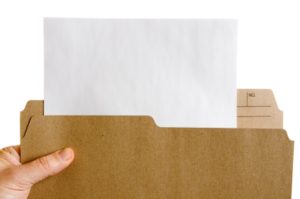 Recently, at a Wills For Heroes clinic, a first responder asked what the requirements were for a Will to be valid in Minnesota and wondered if a Will could be handwritten. I thought these were interesting questions and wanted to share my answers with all of you dedicated Epilawg readers.
Recently, at a Wills For Heroes clinic, a first responder asked what the requirements were for a Will to be valid in Minnesota and wondered if a Will could be handwritten. I thought these were interesting questions and wanted to share my answers with all of you dedicated Epilawg readers.
Will Requirements
First, Minnesota, like many states, has the following requirements for a valid Will. A Will must be:
- For an individual 18 years of age or older who is of sound mind
- In writing
- Signed by the testator or in the testator’s name signed by another person at the testator’s direction and in the testator’s presence
- Signed by two individuals each of whom signed within a reasonable time after witnessing either the signing of the Will or the testator’s acknowledgment of that signature or acknowledgment of the Will
That’s it. Those are the only requirements to have a valid Will in Minnesota. This means that Minnesota honors Holographic Wills, which is a Will that is entirely handwritten, as long as the requirements above are satisfied.
Holographic Wills
In other states, even if a Holographic Will has not been witnessed, are still considered valid. In general, to prove the validity of a Holographic Will:
- There must be evidence that the testator actually created the Will, which can be proved through the use of handwriting experts.
- The testator must have had the intellectual capacity to write the will, although there is a presumption that a testator had such capacity unless there is evidence to the contrary.
- The testator must be expressing a wish to direct the distribution of her estate to beneficiaries.
Holographic Wills are common and are often created in emergency situations, such as when the testator is alone, trapped, and near death.
Although a Holographic Will can be valid, be sure to consult an attorney in your area to consider all the nuances involved to best plan for the distribution of your estate.
